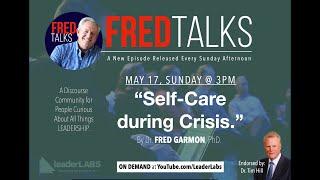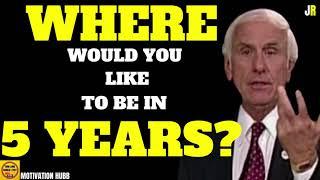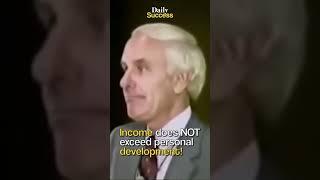On World Environment Day, UN Secretary-General Guterres will deliver a pivotal speech at the American Museum of Natural History with opening remarks by UN Special Envoy Michael R. Bloomberg and Museum President Sean M. Decatur.
---
As climate records are shattered, and emissions continue to rise, on Wednesday, June 5 at 10:00 AM EDT the UN Secretary-General António Guterres will set out some hard-hitting truths about the state of the climate, the grotesque risk leaders are running, and what companies and countries – particularly the G7 and the G20 – need to do over the next eighteen months to salvage humanity’s chances of a liveable future. The Secretary-General will also share new data from the World Meteorological Organisation and The Copernicus Climate Change Service. The Secretary-General will be joined by Michael R. Bloomberg, UN Secretary-General’s Special Envoy on Climate Ambition and Solutions and Sean M. Decatur, President of the American Museum of Natural History.
António Guterres, United Nations Secretary-General
Michael R. Bloomberg, UN Secretary-General’s Special Envoy for Climate Ambition and Solutions
Sean M. Decatur, President of the American Museum of Natural History
Femi Oke, International Journalist
UN Climate Action website: https://www.un.org/en/climatechange
Delivering a special address at the American Museum of Natural History on climate change, Secretary-General António Guterres today (5 Jun) said, “the truth is, almost ten years since the Paris Agreement was adopted, the target of limiting long-term global warming to 1.5 degrees Celsius is hanging by a thread.”
As climate records are shattered, and emissions continue to rise, Guterres stressed that the world “is spewing emissions so fast” that by 2030, “a far higher temperature rise would be all but guaranteed.”
He noted a World Meteorological Organisation report, issued today that indicates that “there is an eighty percent chance the global annual average temperature will exceed the 1.5 degree limit in at least one of the next five years.”
Guterres said, “we are playing Russian roulette with our planet. We need an exit ramp off the highway to climate hell. And the truth is, we have control of the wheel. The 1.5 degree limit is still just about possible. Let’s remember – it’s a limit for the long-term – measured over decades, not months or years.”
He pointed out that “the difference between 1.5 and two degrees could be the difference between extinction and survival for some small island states and coastal communities. The difference between minimizing climate chaos or crossing dangerous tipping points.”
1.5 degrees, Guterres said, “is not a target. It is not a goal. It is a physical limit.”
The Secretary-General set out what companies and countries – particularly the G7 and the G20 – need to do over the next eighteen months to salvage humanity's chances of a liveable future.
He said, “the cost of all this chaos is hitting people where it hurts: From supply-chains severed, to rising prices, mounting food insecurity, and uninsurable homes and businesses. That bill will keep growing. Even if emissions hit zero tomorrow, a recent study found that climate chaos will still cost at least $38 trillion a year by 2050.”
Renewables he noted, “already make up thirty percent of the world’s electricity supply. And clean energy investments reached a record high last year – almost doubling in the last ten years. Wind and solar are now growing faster than any electricity source in history. And economic logic makes the end of the fossil fuel age inevitable.”
The only questions, Guterres said are: “Will that end come in time? And will the transition be just?”
The G20 countries, he stressed, “produce eighty percent of global emissions” and they “have the responsibility, and the capacity, to be out in front.”
He said, “advanced G20 economies should go furthest, fastest; And show climate solidarity by providing technological and financial support to emerging G20 economies and other developing countries.”
The Secretary-General said, “it is a disgrace that the most vulnerable are being left stranded, struggling desperately to deal with a climate crisis they did nothing to create. We cannot accept a future where the rich are protected in air-conditioned bubbles, while the rest of humanity is lashed by lethal weather in unliveable lands.”
He said, “it is high time to put an effective price on carbon and tax the windfall profits of fossil fuel companies. By COP29, we need early movers to go from exploring to implementing solidarity levies on sectors such as shipping, aviation, and fossil fuel extraction – to help fund climate action. These should be scalable, fair, and easy to collect and administer. None of this is charity. It is enlightened self-interest.”
---
As climate records are shattered, and emissions continue to rise, on Wednesday, June 5 at 10:00 AM EDT the UN Secretary-General António Guterres will set out some hard-hitting truths about the state of the climate, the grotesque risk leaders are running, and what companies and countries – particularly the G7 and the G20 – need to do over the next eighteen months to salvage humanity’s chances of a liveable future. The Secretary-General will also share new data from the World Meteorological Organisation and The Copernicus Climate Change Service. The Secretary-General will be joined by Michael R. Bloomberg, UN Secretary-General’s Special Envoy on Climate Ambition and Solutions and Sean M. Decatur, President of the American Museum of Natural History.
António Guterres, United Nations Secretary-General
Michael R. Bloomberg, UN Secretary-General’s Special Envoy for Climate Ambition and Solutions
Sean M. Decatur, President of the American Museum of Natural History
Femi Oke, International Journalist
UN Climate Action website: https://www.un.org/en/climatechange
Delivering a special address at the American Museum of Natural History on climate change, Secretary-General António Guterres today (5 Jun) said, “the truth is, almost ten years since the Paris Agreement was adopted, the target of limiting long-term global warming to 1.5 degrees Celsius is hanging by a thread.”
As climate records are shattered, and emissions continue to rise, Guterres stressed that the world “is spewing emissions so fast” that by 2030, “a far higher temperature rise would be all but guaranteed.”
He noted a World Meteorological Organisation report, issued today that indicates that “there is an eighty percent chance the global annual average temperature will exceed the 1.5 degree limit in at least one of the next five years.”
Guterres said, “we are playing Russian roulette with our planet. We need an exit ramp off the highway to climate hell. And the truth is, we have control of the wheel. The 1.5 degree limit is still just about possible. Let’s remember – it’s a limit for the long-term – measured over decades, not months or years.”
He pointed out that “the difference between 1.5 and two degrees could be the difference between extinction and survival for some small island states and coastal communities. The difference between minimizing climate chaos or crossing dangerous tipping points.”
1.5 degrees, Guterres said, “is not a target. It is not a goal. It is a physical limit.”
The Secretary-General set out what companies and countries – particularly the G7 and the G20 – need to do over the next eighteen months to salvage humanity's chances of a liveable future.
He said, “the cost of all this chaos is hitting people where it hurts: From supply-chains severed, to rising prices, mounting food insecurity, and uninsurable homes and businesses. That bill will keep growing. Even if emissions hit zero tomorrow, a recent study found that climate chaos will still cost at least $38 trillion a year by 2050.”
Renewables he noted, “already make up thirty percent of the world’s electricity supply. And clean energy investments reached a record high last year – almost doubling in the last ten years. Wind and solar are now growing faster than any electricity source in history. And economic logic makes the end of the fossil fuel age inevitable.”
The only questions, Guterres said are: “Will that end come in time? And will the transition be just?”
The G20 countries, he stressed, “produce eighty percent of global emissions” and they “have the responsibility, and the capacity, to be out in front.”
He said, “advanced G20 economies should go furthest, fastest; And show climate solidarity by providing technological and financial support to emerging G20 economies and other developing countries.”
The Secretary-General said, “it is a disgrace that the most vulnerable are being left stranded, struggling desperately to deal with a climate crisis they did nothing to create. We cannot accept a future where the rich are protected in air-conditioned bubbles, while the rest of humanity is lashed by lethal weather in unliveable lands.”
He said, “it is high time to put an effective price on carbon and tax the windfall profits of fossil fuel companies. By COP29, we need early movers to go from exploring to implementing solidarity levies on sectors such as shipping, aviation, and fossil fuel extraction – to help fund climate action. These should be scalable, fair, and easy to collect and administer. None of this is charity. It is enlightened self-interest.”
- Category
- United Nations
- Tags
- UN, United Nations, UNGA
Be the first to comment













